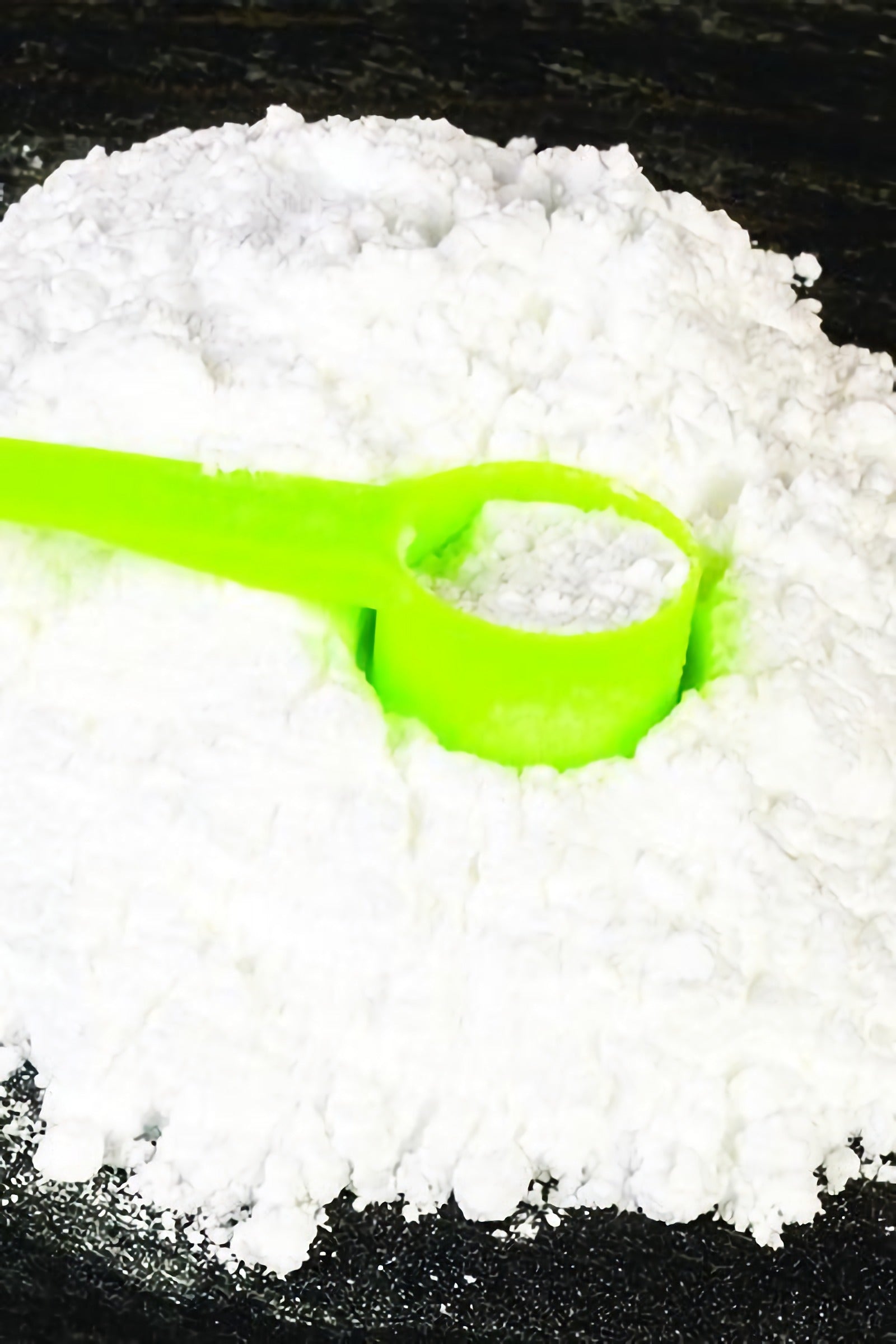The potential influence of glutamine on training success

The reader has probably heard about glutamine and may have wondered whether it is a supplement they should invest their money in. Since many exercisers have a limited budget for supplements, they naturally want to be sure that every cent they spend on supplements contributes to the desired results. This article will look at the different effects of glutamine and use recent studies to show how glutamine can influence training results. The reader should then have sufficient information to decide for themselves whether glutamine is a suitable supplement for them.
The effects of glutamine on the immune system
Every time you go to the gym and complete a strenuous training session, this places a heavy burden on the immune system. This is especially the case when you train with heavy weights or do HIIT cardio workouts, as this type of training is very demanding on the body, both in terms of the muscles and the central nervous system.
If the immune system is functioning at a reduced capacity, then the risk of infection and illness, which can lead to an interruption in training, is significantly increased.
A study published in the Nutritional Journal investigated the effect of oral glutamine administration in long-distance runners and rowers during the seven days following training compared to a non-training control group. It was observed that the subjects who exercised showed a 20% reduction in plasma glutamine levels, an increase in white blood cell count and a reduction in lymphocytes. The subjects who exercised and took oral glutamine showed a better ratio of T helper cells to T suppressor cells and also had a lower rate of infections.
This study suggests that glutamine supplementation after intense, exhaustive exercise may improve the immune system's ability to cope with the stress caused by exercise.
The effects of glutamine on replenishing glycogen stores after exercise
The second thing glutamine can help with is post-workout glycogen resynthesis. Immediately after a workout with weights, muscle glycogen stores are depleted, which is why it is extremely important to eat your post-workout meal as soon as possible after your workout.
The quicker you can replenish the glycogen stores in your exercised muscles, the quicker you will recover from your last training session, meaning you will be ready to hit the gym for your next training session sooner.
Scientists from the Department of Anatomy and Physiology in the UK reported that adding 8 grams of glutamine to 330 ml of a glucose polymer solution drunk by volunteers after an exhaustive training session increased plasma glutamine concentrations and also increased body-wide non-oxidative glucose utilization by 25%.
So by adding glutamine to your post-workout shake, you can indeed speed up the post-workout recovery process, which will not only make you feel better immediately after your workout, but also increase your ability to build more muscle tissue over time.
Glutamine as an indicator of and protection against potential overtraining
Overtraining is closely related to recovery, as if you do not recover sufficiently from your training sessions on a regular basis, you will eventually enter a state of overtraining.
While inadequate recovery after a single training session only has short-term effects, regular inadequate recovery can easily become a real problem.
A study published in the American Journal of Clinical Nutrition looked at glutamine as an indicator of overtraining and found that athletes suffering from overtraining had glutamine plasma levels that were below normal for several months or even years.
This research suggests that oral glutamine supplementation can prevent glutamine plasma levels from falling sharply over such a long period of time, potentially reducing the risk of overtraining.
Furthermore, this study shows that if you are looking for a way to determine if you are in a state of overtraining, a determination of current glutamine plasma levels could be an indicator to use.
The effects of glutamine on growth hormone secretion
Another way in which glutamine could prove beneficial for athletes, particularly strength athletes and bodybuilders, is by increasing growth hormone levels in the body. Human growth hormone is one of the primary hormones involved in building new muscle mass. For this reason, doing anything to increase the levels of this anabolic hormone is a very good way to achieve better results in terms of muscle building.
In a study published in the American Journal of Clinical Nutrition, conducted on nine healthy volunteers, it was shown that 90 minutes after oral ingestion of glutamine, circulating growth hormone levels and plasma bicarbonate levels were increased. Although this increase was not extremely significant, any increase in growth hormone levels will promote muscle growth.
Conclusion
All of these points show that glutamine is an effective tool that can be used to increase training performance. Many products available on the market contain other ingredients in addition to glutamine and can therefore have potential benefits in addition to those mentioned above. But even on its own, glutamine is already a very helpful product that represents a good investment.
http://www.bodybuilding.com/fun/how-glutamine-benefits-training.htm
